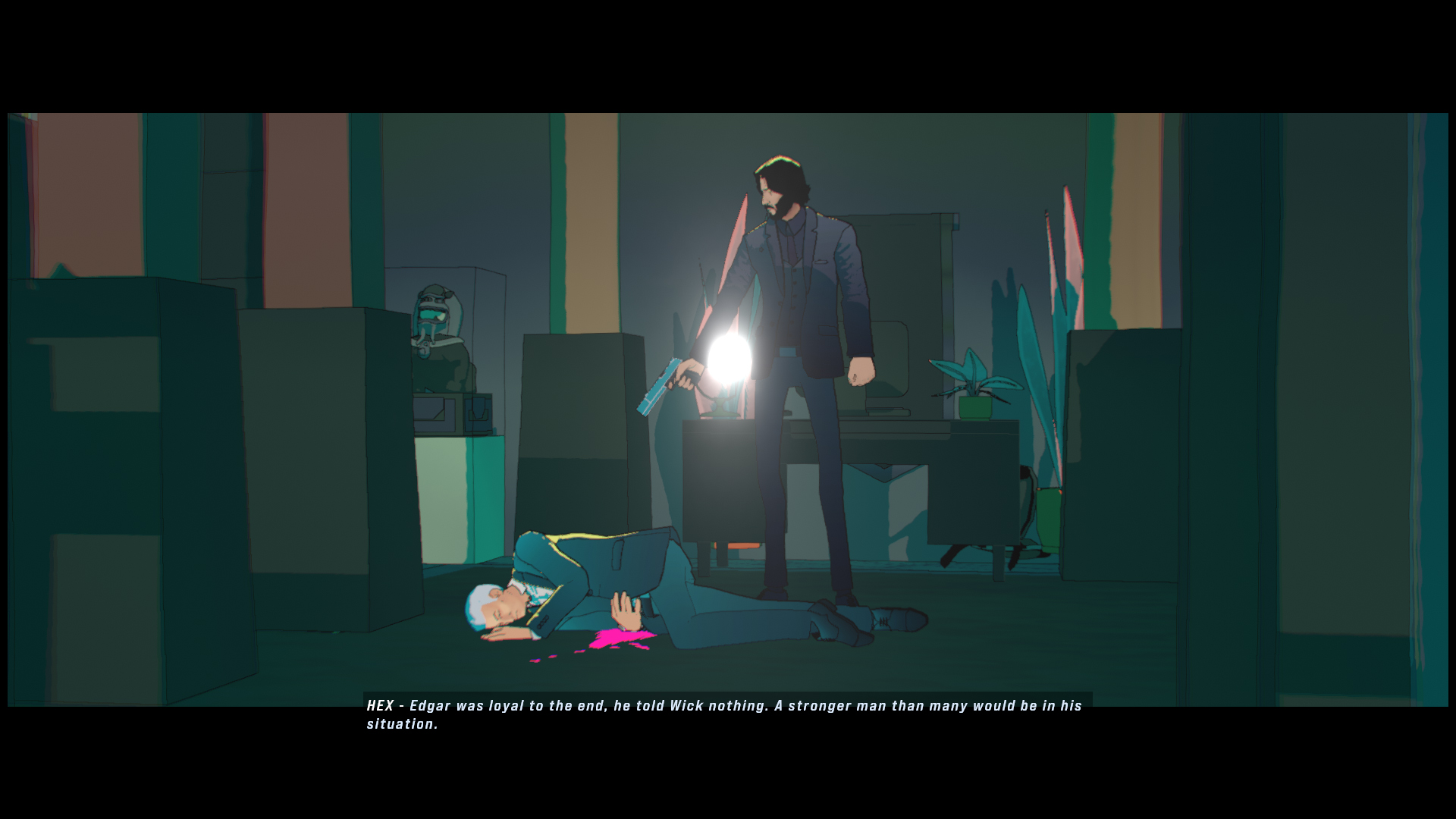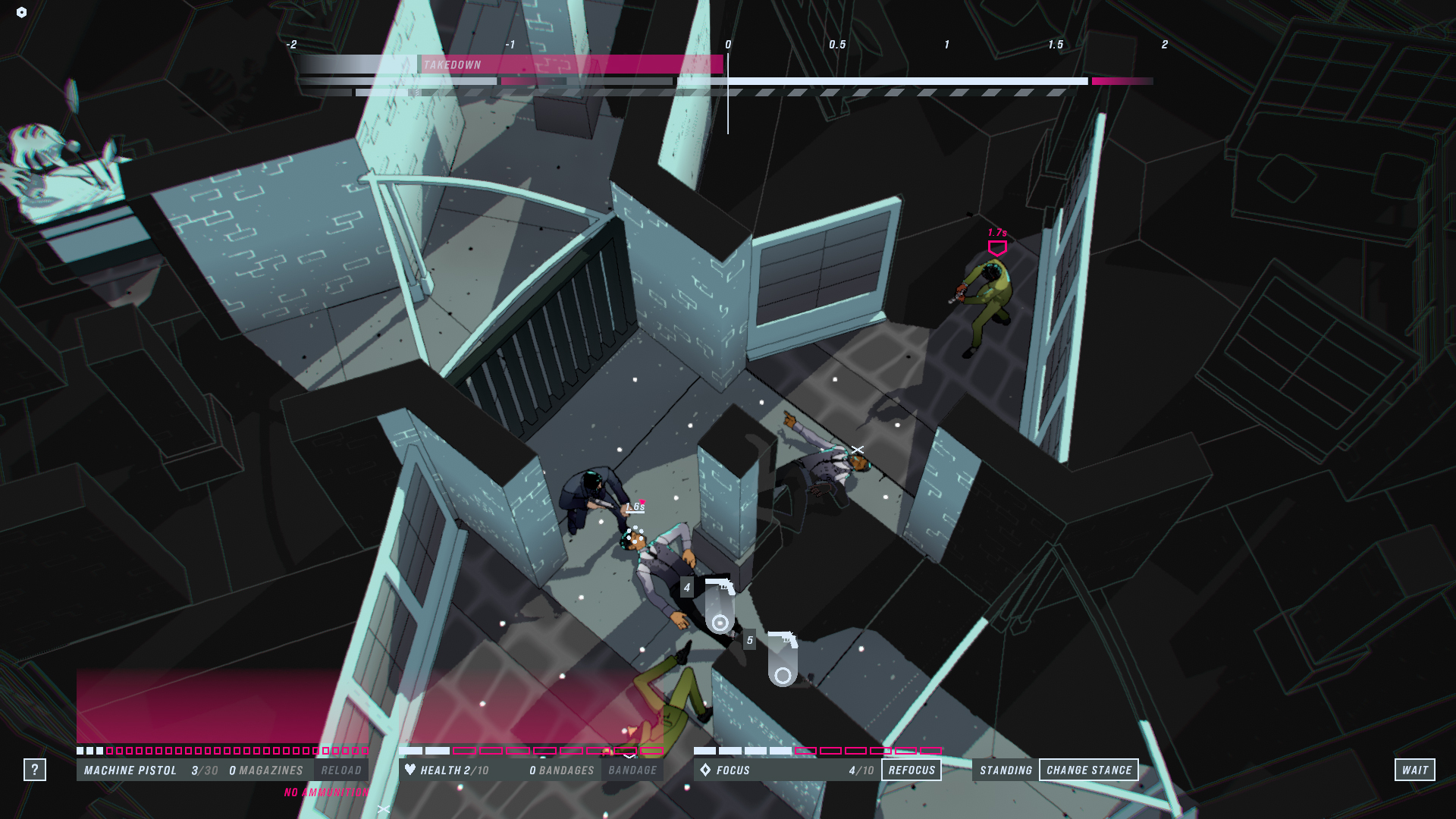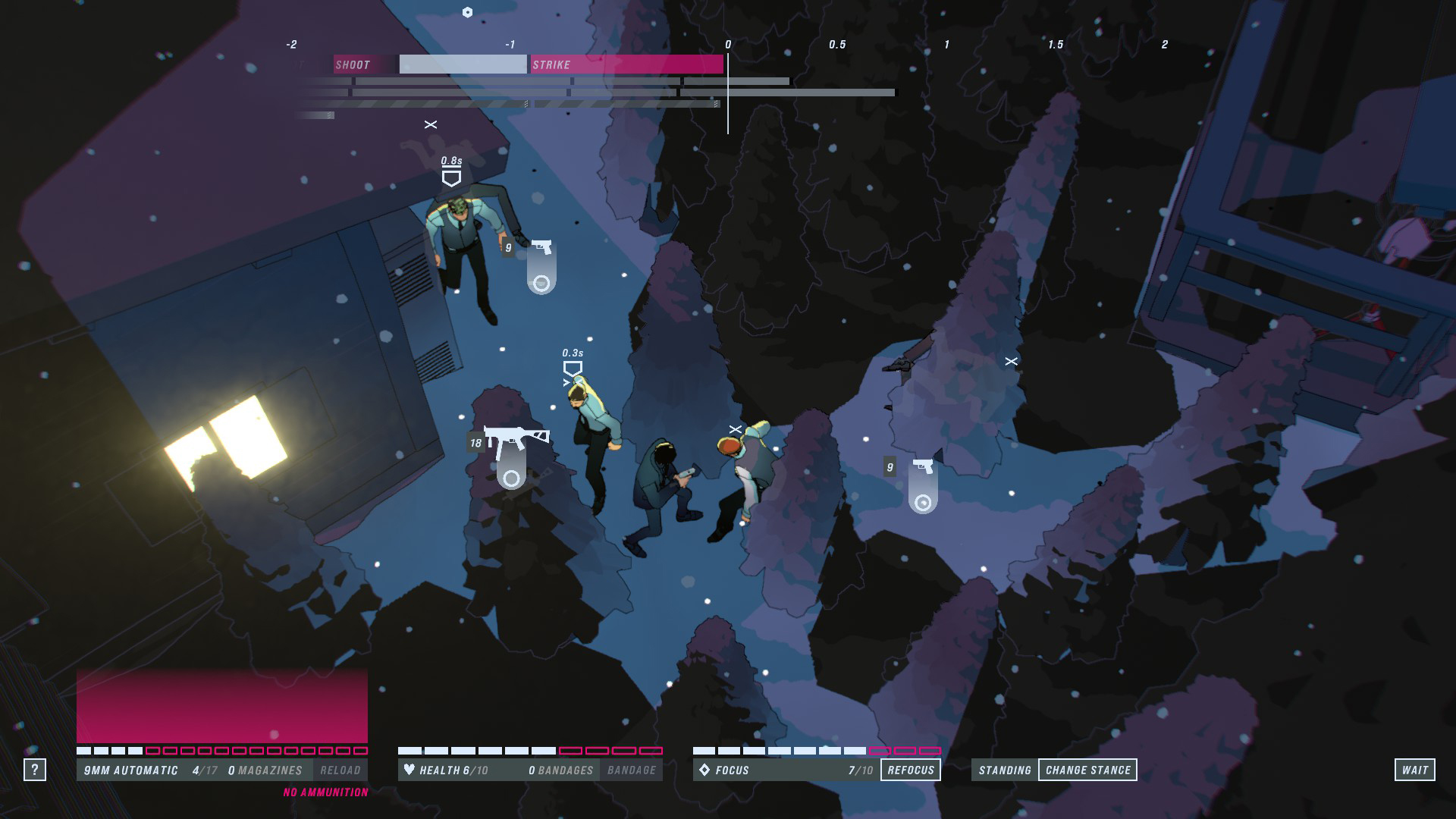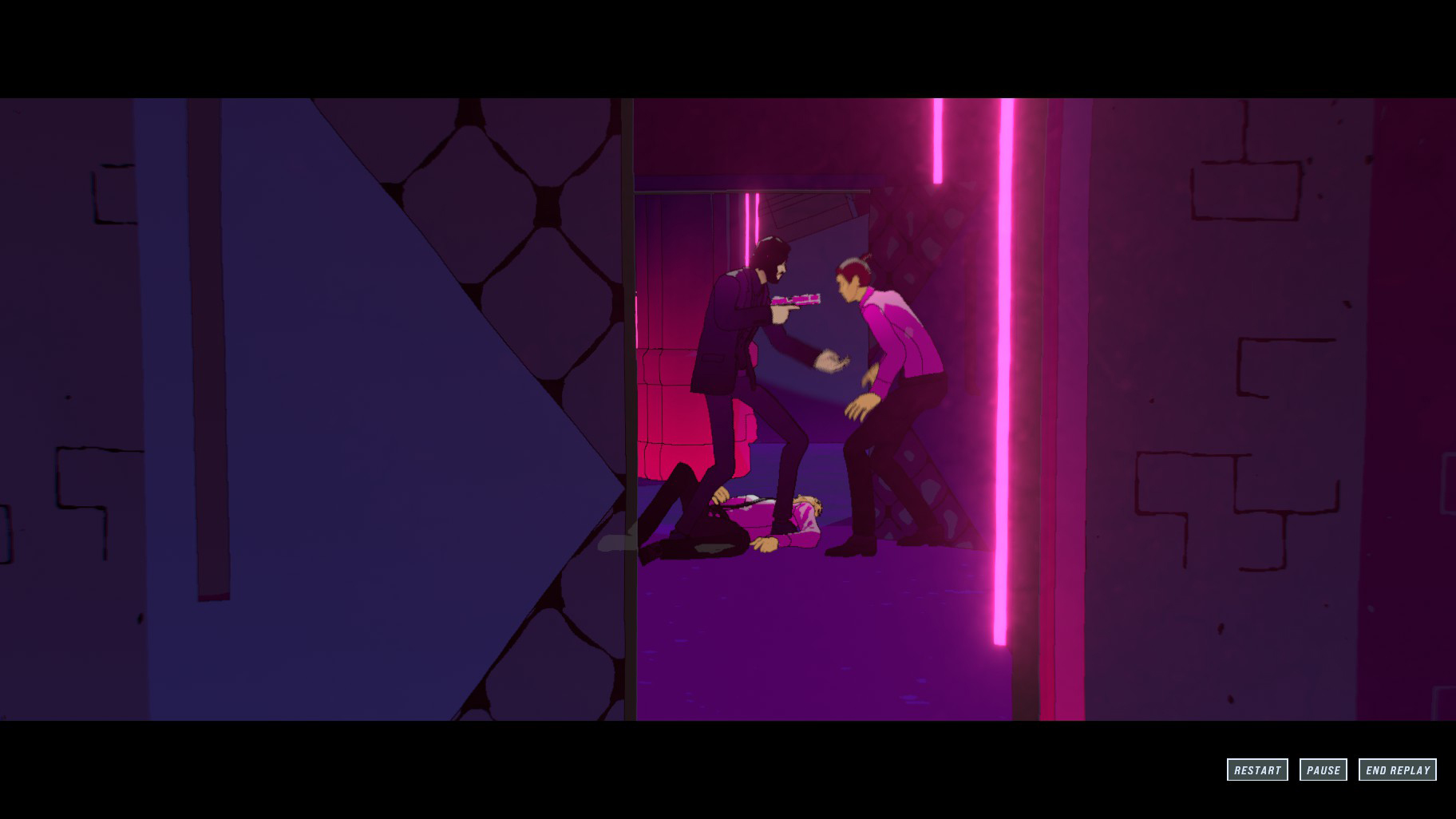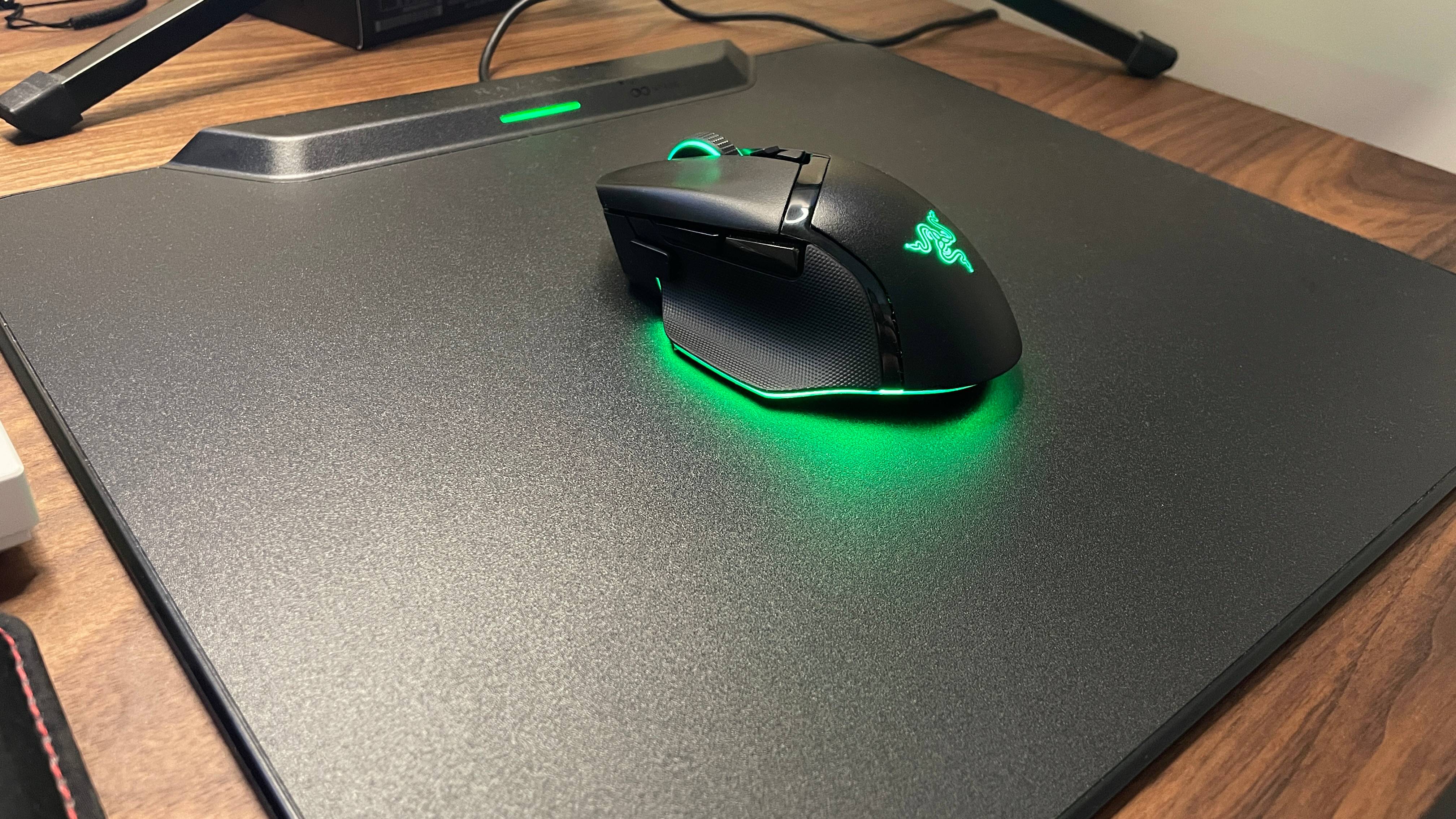Our Verdict
An elegant tactical puzzler that captures the pace and action of the movies.
PC Gamer's got your back
What is it? A hex-based tactics game set in the John Wick universe.
Expect to pay: $20/£15
Developer: Bithell Games
Publisher: Good Shepherd Entertainment
Multiplayer: None
Link: Official site
Grunt 1 rounds a corner and I lash out at him like a coiled snake, judo-flipping him to the ground. Grunt 2 spots me, fires a shot, but I duck back into cover with a margin of milliseconds, finish off Grunt 1, then run out to meet the pursuant Grunt 2 with another takedown. Grunt 3 tries running up behind me but I whip round and gun him down, timed perfectly to greet the recovering Grunt 2 at my feet with a climactic smack across the chops.
OK, that last bit may not have been terribly slick and John Wick-like (budgetary restraints reflected in the game’s animations, perhaps), but beyond that this feels just like a movie tie-in—and prequel—to the super-stylish hitman series should.
The above sequence took me about 30 seconds to complete, but I can work out from the all-important timeline at the top of the screen that it took John Wick a mere nine in-game seconds to carry it out. This may be a stop-start tactics game, but it’s one of the fastest /feeling/ games of its type that I’ve ever played, interposing an aggressive sense of flow into a methodical framework that would make Keanu Reeves himself whip off his shades and earnestly frown in approval.
A crucial part of this sense of pace is the fact that the game is timeline-based rather than turn-based; every character on a level moves whenever you move along the minimal hex-based grid. Everyone moves at the same pace, and each action—shooting, melee attacks, weapon pickups—has a ‘preparation’ time as well as the time it takes to complete the actual action. Most actions, apart from regular melee strikes and gunfire, use ‘Focus’ points too, which you can recharge whenever you have a couple of in-game seconds to spare.
Timelines at the top of the screen shows how long it takes for you and visible enemies to carry out each action. This is vital, as you use it to gauge whether you can execute attacks before your enemies do, or at the very least make sure that during their attacks you’re on the move, crouching or dodging to minimise your chances of being hit.
All this imbues John Wick Hex with a satisfying sense of action-movie improv, like a more regimented top-down version of Superhot or indeed the John Wick movies themselves. You often run out of ammo, and health resupplies are at a premium, but through a combination of meticulous melee moves (usually initiated by throwing your spent gun in the face of an enemy) you’d be amazed at how many corners you can fight your way out of.
Hexcellent execution
Certain moves, like Takedown, not only chuck your enemy to the ground and stun them, but change your position, letting you preselect a contiguous tile where you want John to stand after the move. Similarly, the ‘Push’ move lets you grab an enemy and haul them back a few tiles—great for breaking line of sight from a nearby gunman or closing the distance on another enemy quickly. Your position at the end of each action is critical, and at its best John Wick Hex feels like you’re pirouetting from one enemy to the next in a graceful dance of death.
Keep up to date with the most important stories and the best deals, as picked by the PC Gamer team.
But as I progressed through the six-chapter campaign—no more than nine hours long—I began to find little ways to screw the system that were more redolent of playing ‘It’ around a stationary car than the blockbuster source material. Enemy AI mindlessly homes in on you once you’ve been spotted, always aware of your position whether you’re sighted or not. This meant that, particularly later on with higher enemy counts, I quite often resorted to the ol’ funnel-of-death tactic, luring a hapless stream of goons through a doorway or outwitting them by running around pillars.
The cel-shaded art style is complemented by that colour-de-rigeur neon palette of mostly blues and pinks (the fuschia blood splatters are a particularly nice touch). It’s a sparing aesthetic, and a little flat in detail. Character faces are beady-eyed and blank, and animations are limited. There are no animations for attacking downed enemies, for example, so instead they’re jolted awkwardly into upright positions for the attack, and I’m pretty sure that John’s ‘Strike’ move isn’t meant to look like an open-handed slap followed by a rather dainty kick in the balls. This means that the zoomed-in real-time replays you can watch at the end of each level don’t look quite as flashy as you’d hope for, even though they are a welcome touch.
But beyond that, John Wick Hex is a movie tie-in that doesn’t go for the lowest common denominator. What could easily have been a generic real-time action game works wonderfully in this form—converting the pace of the movie action into a very elegant illusion of it.
It works admirably despite the within this somewhat sparse presentation, and feels like an idea that the developer could evolve into something really special in the future—with or without the John Wick license.
An elegant tactical puzzler that captures the pace and action of the movies.
Robert is a freelance writer and chronic game tinkerer who spends many hours modding games then not playing them, and hiding behind doors with a shotgun in Hunt: Showdown. Wishes to spend his dying moments on Earth scrolling through his games library on a TV-friendly frontend that unifies all PC game launchers.
